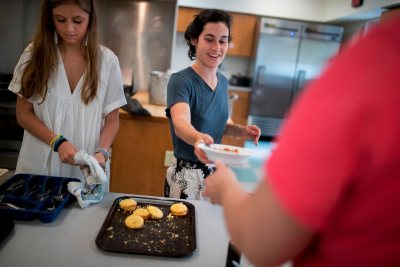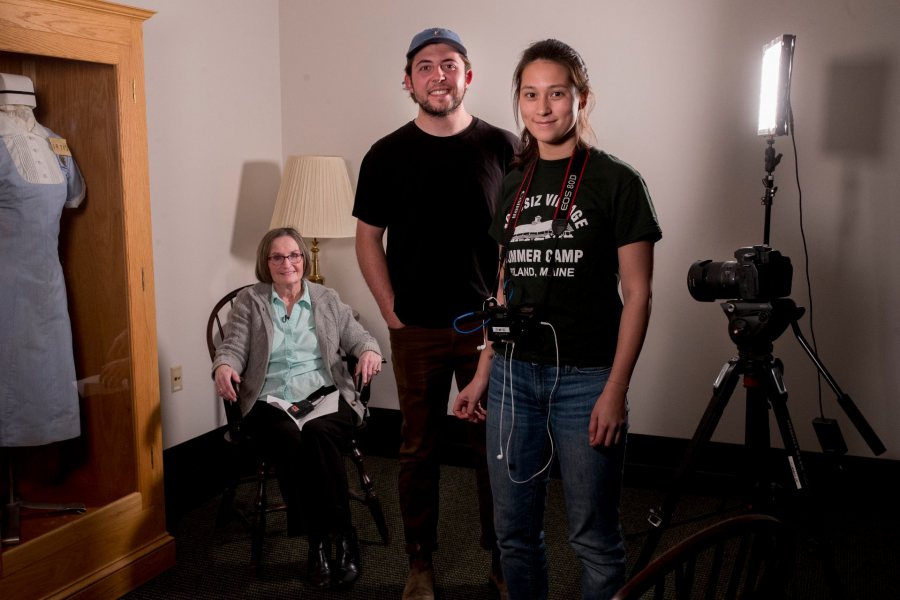Work In Lewiston/Auburn, and Beyond
A former milltown, Lewiston, Maine is the city that Bates calls home. Its neighbor across the Androscoggin River is Auburn, Maine. These “Twin Cities” have seen multiple waves of immigration, as well as periods of transition in the local economy. In the late 19th and early 20th century, a large number of immigrants were Franco-Americans (from Canada), many of whom worked in the shoe and textile mills while they were in operation. The closure of those mills posed a substantial challenge to economic development, but recent decades have seen a flowering of many new local businesses, including downtown restaurants and shops. Among those residents who have contributed to this resurgence are “new Mainers,” particularly immigrants and refugees from African countries such as Somalia. There have of course been growing pains during such transitions, but many individuals, government entities, and non-governmental agencies have labored to meet challenges and capitalize on new opportunities. And in recent years, they have often done so in partnership with members of the Bates community.
Indeed, the college’s Harward Center for Community Partnerships has helped connect Bates faculty, staff, and students with community partners doing mutually beneficial work. For example, Bates has a long-standing relationship with Blake Street Towers, a low-income independent living facility for seniors and the differently-abled. A recent sociology class on Life Course and Aging was able to build on this partnership to address issues of food insecurity and tobacco use. Follow the link below for the full article on this partnership.

Students work on food insecurity and tobacco use at Blake Street Towers. (Photo: Kristen Cloutier)
In another example, Bates psychology major Courtney Porfido ’18 and sociology major Matthew Glasgow ’19 teamed up with Central Maine Medical Center. The students’ project was to interview older alumni of the Maine College of Health Professions, which was founded in 1891. Follow the link below to learn more about this and other community-engaged projects that are part of the college’s Short Term Action/Research Team (STA/RT) program.
Our departmental faculty and students have been very active in partnerships with others working to serve important needs in “L/A.”
The following is just a sample of such partnerships:
- With Central Maine Medical Center: Participation in hospital-based research projects
- With Hillview’s Afterschool Program: Offering support for/involvement with the Girls Aspiration Program
- With Maine Community Integration: Considering health needs of immigrant and refugee women
- With Montello Alternative Recess Program: Creating an intervention to build on strengths of 4th graders with special needs
- With the St. Mary’s Nutrition Center: Local food system assessment
- With Tree Street Youth Center: Maximizing space and personnel for increasing physical activity of participants
Additionally, one of the alternatives that our majors have in meeting the methods requirement is a community-based research methods course. Finally, one option for senior thesis is a community-based research (CBR) project, which also includes a community placement. Here are but a few examples of abstracts from CBR theses:
Grace Beaudet – Recess and Developmental Play-Based Interventions for Elementary Students
Although Lewiston/Auburn figures prominently in the community-engaged work that we do with our students–and those partnerships benefit our students immensely–we have also found opportunities to collaborate with individuals and organizations meeting needs in the broader region, and even beyond. For example, Krista Aronson leads the Diverse BookFinder project, whose team of academics and professionals works to facilitate access to children’s books whose illustrations feature characters who are people of color, indigenous people, and more.
See also:
